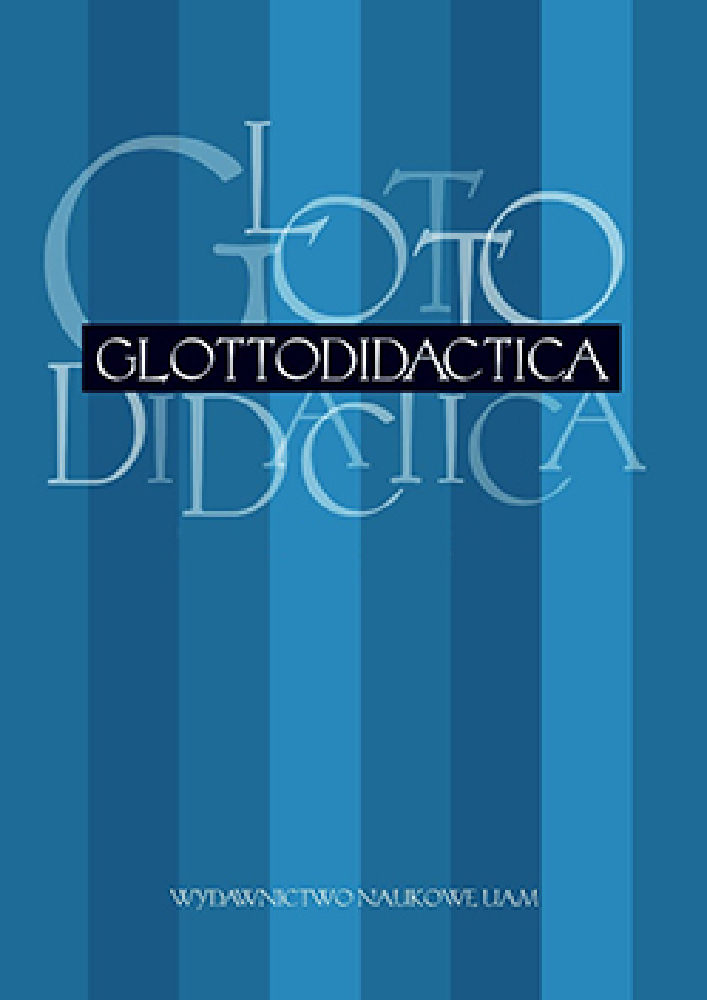Abstract
The use of a reduced verbal system as ELF English as a lingua franca in the sciences does not appear to be a perfectly adequate way of expressing cultural identities. A modern society should instead enforce, through instruction, the understanding of several national cultural scripts, one’s own and others, and the understanding of the way communication and languages works. Multilingualism and interculture in the scientific world can be made possible by the digital world and its new editorial products.
References
Assmann, A., 2007. Die Geisteswissenschaftler als Schutzengel des kulturellen Gedächtnisses. In: Klaus-Michael Kodalle (ed.). Geisteswissenschaften – Im Gegenwind des Zeitgeistes. Mainz: Akademie der Wissenschaft und der Literatur, 61-75.
Broszinsky-Schwabe, E., 2011. Interkulturelle Kommunikation. Wiesbaden: VS-Verlag für Sozialwissenschaften.
Clyne, M., 1994. Inter-cultural communication at work. Cultural values in discourse. Cambridge: Cambridge University Press.
Ehlich, K., 2011. Wissenschaftssprachliche Strukturen. In: Eins, W., Glück, H., Pretscher, S. (eds). Wissen schaffen – Wissen kommunizieren. Wissenschaftssprachen in Geschichte und Gegenwart. Wiesbaden: Harrassowitz, 117-131.
Eichinger, L.M., 2010. Vom Nutzen der eigenen Sprache in der Wissenschaft – am Beispiel des heutigen Deutsch. In: Kirchhof, P. (ed.). Wissenschaft und Gesellschaft. Begegnung von Wissenschaft und Gesellschaft in Sprache. Heidelberg: Winter, 27-43.
Foschi Albert, M., 2009. Kulturspezifische Züge schriftlicher Textsorten am Beispiel italienisch- und deutschsprachiger wissenschaftlicher Rezensionen. In: Dalmas, M., Foschi Albert, M., Neuland, E. (eds). Wissenschaftliche Textsorten im Germanistikstudium deutsch-italienisch-französisch kontrastiv Trilaterales Forschungsprojekt in der Villa Vigoni (2007-2008). Menaggio di Loveno: Villa Vigoni [http://www.villavigoni.eu/index.php?id=79&L=1], 258-277.
Gumperz, J.J., 1982. Discourse Strategies. Cambridge: Cambridge University Press.
Hoffmann, E., 1989. Lost in translation: A Life in a new Language. New York: Dutton, Bitte streichen.
Hopf, H., 2010. Die Lage der Wissenschaftssprache Deutsch in der Chemie. In: Kirchhof, P. (ed.). Wissenschaft und Gesellschaft. Begegnung von Wissenschaft und Gesellschaft in Sprache. Heidelberg: Winter, 95-108.
House, J., 2010. The Pragmatics of English as a lingua franca. In: Trosborg, A. (ed.). Pragmatics across Languages and Cultures. Berlin–New York: De Gruyter Mouton, 363-387.
Khoo Thwe, P., 2002. From the Land of Green Ghosts: A Burmese Odyssey. New York: Harper Collins.
Kirchhof, P., 2010. Vorwort. In: Kirchhof, P. (ed.). Wissenschaft und Gesellschaft. Begegnung von Wissenschaft und Gesellschaft in Sprache. Heidelberg: Winter, 7-10.
McCarty, T.L., Romero-Little, M.E., Warhol, L., Zepeda, O., 2010. “I’m speaking English Instead of My Culture”: Portraits of Language Use and Change among Native American Youth. In: Farr, M., Seloni, L., Song, J. (eds). Ethnolinguistic Diversity and Education. Language, Literacy, and Culture. New York–London: Routledge, 69-98.
Niemeier, S., 1998. Introduction. In: Niemeier, S., Campbell C.P., Dirven, R. (eds). The Cultural Context in Business Communication. Amsterdan–Philadelphia: John Benjamins Publishing Company, 1-10.
Sa’adeddin, M.A., 1989. Text Development and Arabic-English Negative Interference. In: Applied Linguistics 10, 1, 36-51.
Sarangi, S., 2009. Culture. In: Senft, G., Östman, J.-O., Verschueren J. (eds). Culture and Language Use. Amsterdam–Philadelphia: John Benjamins Publishing Company, 81-104.
Skowronek, B., 2011. Deutsch als Fremdsprache, ökokratisches Konzept. In: Glottodidactica XXXVII, 129-140.
Thielmann, W., 2009. Deutsche und englische Wissenschaftssprache im Vergleich. Hinführen – Verknüpfen – Benennen. Heidelberg: Synchron Wissenschaftsverlag der Autoren.
Trosborg, A., 2010. Introduction. In: Trosborg, A. (ed.). Pragmatics across Languages and Cultures. Berlin–New York: De Gruyter Mouton, 1-39.
Wierzbicka, A., 2010. Cultural scripts and intercultural communication. In: Trosborg, A. (eds). Pragmatics across Languages and Cultures. Berlin–New York: De Gruyter Mouton, 43-78.
License
Authors
Authors of texts accepted for publication in Glottodidactica are required to complete, sign and return to the Editorial team’s office the Agreement for granting a royalty-free license to works with a commitment to grant a CC sub-license.
Under the agreement, the authors of the texts published in Glottodidactica grant Adam Mickiewicz University in Poznań a non-exclusive, royalty-free license and authorize the use of Attribution-NoDerivatives 4.0 International (CC BY-ND 4.0) Creative Commons sub-license.
The authors retain the right to the free disposal of the work.
Users
Interested Internet users are entitled to use works that have been published in Glottodidactica since 2016, under the following conditions:
▪ attribution – obligation to provide, together with the distributed work, information about the authorship, title, source (link to the original work, DOI) and the license itself.
▪ no derivatives – the work must be preserved in its original form. Without the author's consent, it is not possible to distribute the modified work in the form of translations, publications, etc.
Copyrights are reserved for all texts published before 2016.
Miscellaneous
Adam Mickiewicz University in Poznań retains the property right as a whole (layout, graphic form, title, cover design, logo etc.).
Privacy statement
The names and email addresses published on this journal site will be used exclusively for the purposes declared by this journal and cannot be used for any other purpose or by any other party.




